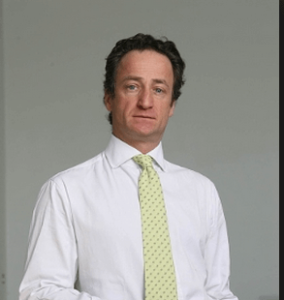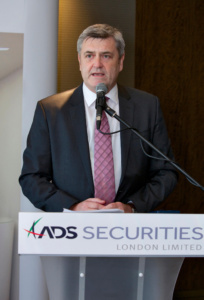“The whole industry needs to change” – Debate over de facto execution models as ADS Securities launches true prime of prime
There is no doubt that one of the most important matters for the non-bank electronic trading industry this year is access to uninterrupted, good quality liquidity in order to provide best execution to an ever demanding client base. When bearing in mind the current reluctance of banks to grant credit to OTC FX companies and […]

There is no doubt that one of the most important matters for the non-bank electronic trading industry this year is access to uninterrupted, good quality liquidity in order to provide best execution to an ever demanding client base.
When bearing in mind the current reluctance of banks to grant credit to OTC FX companies and the risk of default which has been calculated by many Tier 1 banks, themselves going through a period of caution due to low corporate performance, many having reported annual losses during 2015, the ability to provide fluid market access has become an increasing challenge.
Where to go for real prime brokerage relationships at no cost, and why there is a $1.3 trillion gap
Today, FinanceFeeds spoke at length to Marco Baggioli, COO, at ADS Securities in London, who revealed the launch of a new Prime of Prime service which the company is now providing.
In launching its new prime of prime service today in London, ADS Securities understands that following the Swiss National Bank event in January 2015, a number of Tier 1 banks reduced their credit and risk appetites, with Mr. Baggioli having examined this at great length.

Faced with higher capital requirements, higher costs and reduced profitability, some of these Tier 1 banks stopped providing FX-only prime brokerage services and many others re-evaluated their appetite for sub-Tier 1 clients.
In developing the Prime-of-Prime product offering, ADS Securities saw a unique opportunity to leverage both its strong relationships with existing PBs and its high level of capitalization to offer institutions substantial credit facilities to support their prime brokerage needs.
Mr. Baggioli, an expert in institutional trade execution and prime brokerage relationships, estimates that there is a potential credit gap affecting up to $1.3 trillion in terms of average daily volume that needs to be filled, and that the entire method by which OTC firms conduct their business from the relationships with banks, through liquidity and technology providers and prime brokerages, right down to the retail brokerage needs to be examined in order to overcome this matter, reduce the cost and improve the efficiency of prime brokerage relationships.
“The lack of credit will lead to much wider spreads and increased pricing for all, from banks, to hedge funds, international businesses and all FX traders and, at the moment, no one is facing up to the problem” stated Mr. Baggioli.
Entering further into the discussion in order to examine solutions for this, Mr. Baggioli divides the retail brokerage world into three groups
In explaining how he views the current topography, Mr. Baggioli said “To me , when I look at the retail space, I divide the world into 3 major groups of providers.”
“One group is made up of global players like ADSS, FXCM and Saxo Bank. Those, whether they were hit or not by the Swiss National Bank event in January 2015 tend to have less problems with regard to cost base or PB credit lines” he explained.
“Global brokerages have less problems with their cost base because even if these brokers have retail clients on small tickets, their prime broker allows for very cost effective aggregation of trades. These global players have the ability to keep prime brokerage costs low by not suffering small ticket charges. They do this by putting together the flow of a very large number of clients and give them to their prime brokerage once aggregated usually via Netlink” – Marco Baggioli, COO, ADS Securities LLC
“The second group is made up of purely local retail brokers which are specialists in their own niche market or region, whether it is because of regulations that mean that they cannot go abroad, or it is because everything is in the local language of their market, for example” explained Mr. Baggioli.

“This type of company often suffers from very high prime brokerage costs. This is because, for example, if you are a broker in Turkey and offer 24 hour access to clients and trade G5 with liquidity from several different makers, it becomes quite difficult to aggregate throughout the day a relatively small and fragmented flow into a million dollar ticket, or more, to give to your prime broker and avoid surcharges, even during market liquidity hours like London morning.
Let’s say they pay $3 per million, which is competitive, however $3 per million doesn’t apply pro-rata to a $10,000 ticket because small ticket surcharges would kick in below the $1 million mark. The actual cost for that ticket is probably going to be $1.50 because the PB needs to cover CLS costs, hence making the actual per million fee charge on that type of flow $150.” – Marco Baggioli, COO, ADS Securities.
” For these types of companies I would recommend not to go the prime brokerage way, not even the PoP one. It is better for that type of retail brokers to go to a global provider like ADS Securities and take our liquidity in aggregated form instead. We have access to about 80 feeds from bank and non-bank providers as well as from ECNs in one package with no PB costs at all; our retail broker client can chose what LPs the want to add to the pool and we can save them 100% of the prime brokerage costs, whilst providing the same level of best execution they are getting today”.

“The third group is the one made of medium size retail brokers whose business is large enough to cost effectively pay for a PB relationship but whose balance sheet falls short of the minimum required by the larger PBs for their onboarding. ADS Securities’ PoP services would be perfectly suited to their needs” revealed Mr. Baggioli.
Brokers experience liquidity outages all the time due to credit difficulties – this has to change
Going the traditional route of establishing direct relationships with prime brokerages has been recently hampered by the contraction in credit provision by major banks, a matter which often is not on the main agenda of many retail brokerages which obtain their liquidity from liquidity providers which are in the middle of a prime brokerage and a retail broker.
This can result in slippage, liquidity outages and execution difficulties, which in turn creates consumer discomfort and can result in complaints to a regulator, with the broker powerless to resolve it.
Mr. Baggioli explained this subject in detail. “If a broker is technically restricted to one feed, for example they take ADSS’ feed, then it is much easier to comply with best execution requirements because it is the aggregation of the very best liquidity available in the market at any moment in time. On the contrary, if you have an order book which is made up of the pricing that comes from a single bank provider only, then that is the order book of that bank, not the market.”
“In my opinion, going back to what I described earlier” said Mr. Baggioli, “retail brokers that are purely local and do not have large enough volume to make prime brokerages happy should not go the prime nor prime of primes routes, but instead should come to us and that way it will cost them nothing per million.” – Marco Baggioli, COO, ADS Securities LLC.
As a case in point, we are able to show them liquidity from the top banks and venues in the world, which is as good an approximation of best execution as it gets in the current FX market. This would make sure that brokers would be compliant in terms of what they need to satisfy in terms of regulation and save several dollars per million on each trade” said Mr. Baggioli.
What is that $5 per million and what are you paying for?
“I am hearing more and more that there are people out there that sell prime of prime at very low fees, for example $5 per million. How can they do this?! Their own external provider fees, between PB and pre-trade risk management cost them more or less that much, so it does not add up. It is my opinion that these providers are not offering a true prime brokerage, instead they are extracting an extra $5 and stating that it is for prime brokerage, when in fact they are simply showing their client their aggregated liquidity which should come for free ” said Mr. Baggioli.
“For those who don’t need to have a direct relationship between client and liquidity provider and simply want liquidity from a reputable institutional broker, this should not carry additional costs. Why others charge for this I have no idea, we are doing it for free” – Marco Baggioli, COO, ADS Securities.
The next thing that comes into play is capital. Some firms offering similar services to ADS Securities do not have a large enough capital base to have credit lines with prime brokerages to allow clients to hold large positions overnight.
What will be achieved with the new prime brokerage service?
The launch of a new prime brokerage in this sense is a rarity indeed these days. Andrew Saks-McLeod met with Mr. Baggioli in London in order to go through a series of matters which the new service will address:
What’s next in the evolution of this exciting service?
We are launching our prime services for FX Spot supporting both ADSS’ and external liquidity and for NDFs for external liquidity only. We are already working to add ADSS’ own liquidity on the NDFs side. The key focus will certainly be on fine tuning our POP offering to individual client needs over the coming months.
What do you think is the perceived unbalance in the FX value chain that exists globally at the moment?
It is in fact an actual unbalance and the consequences can be devastating for all those FX players whose business model is centred on having a PB provider.
I appreciate that most FX players come from the trading and sales side of the industry and when setting up their own shop have been and still are more focused on securing the front end technology then taking a better care of the back end but this approach is utterly wrong.
The most important success factor has always been having a strong PB relationship in place and it has now become critical, a matter of life or death. Most people I have met in this industry agree to pay $5 per million for liquidity aggregation services, in other words some code and electricity, and at the same time force their PB to negotiating the provision of very valuable credit lines and access to liquidity venues down to a fraction of what they pay for connectivity. Pure madness! – Marco Baggioli, COO, ADS Securities LLC
Some of us are even upset when the PBs refuse to share very expensive and limited settlement lines for the physical delivery of FX: why would they do that for a couple of bucks which are barely covering for their own CLS costs, not to say the service they provide? The very same people who expect this from their PB would be the first one to say no way were they on the other side of the trade. Deliverable FX need be traded wider than notional position taking.
The rebalance must happen sooner rather than later as no one would benefit from another PB dropping out. We must ensure that we pay PBs a fair price for what they provide and limit our connectivity cost to no more than 10% of that if the industry wants to survive.
How does ADS Securities ensure longstanding relationships with its PBs?
ADS Securities senior management’ take on the Firm’s relationships with our banking providers is that we all must ensure that our bankers are happy with the relationship and the business they see from ADS Securities.
Photographs courtesy of ADS Securities









